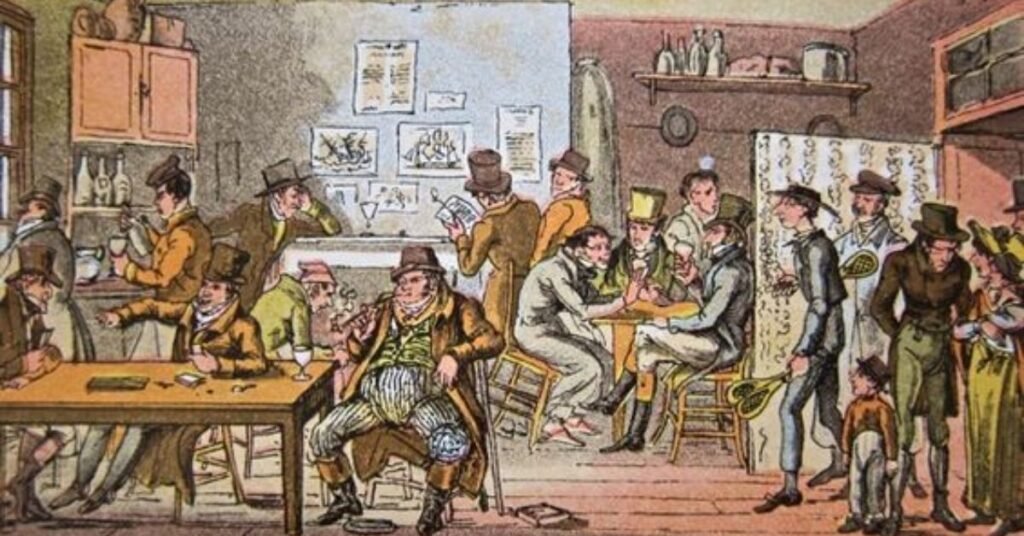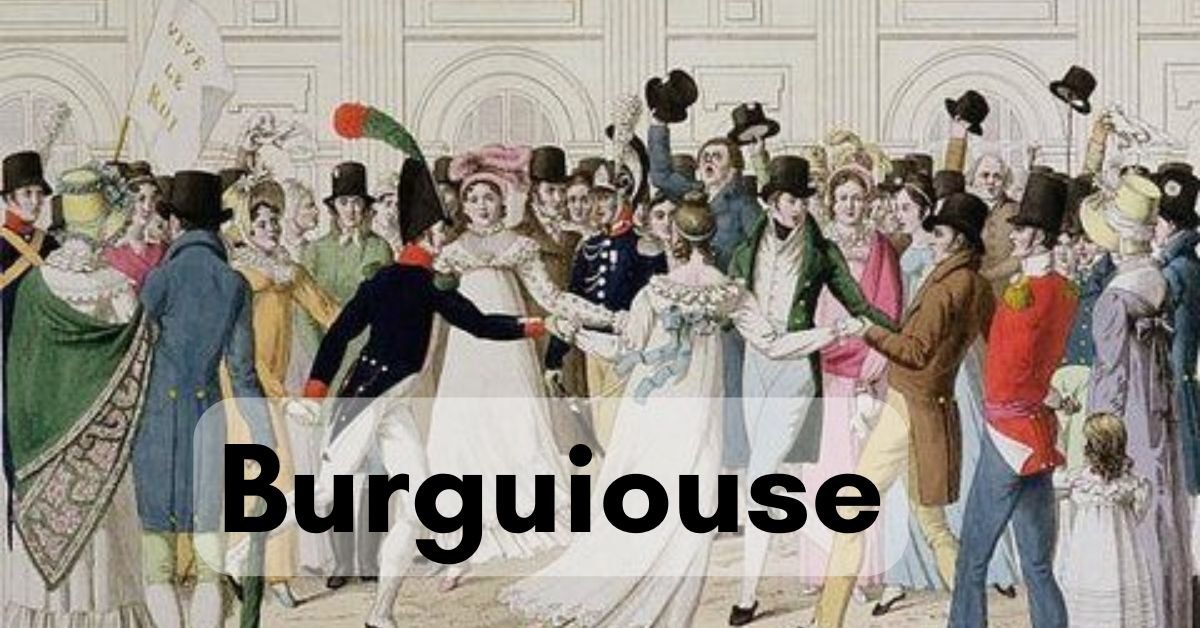The term “burguiouse” represents a fascinating blend of wealth, tradition, and social dynamics. Understanding what it means to be “burguiouse” is essential for grasping the intricacies of modern society and class structures. This group, positioned between the working class and the aristocracy, often navigates a lifestyle marked by both privilege and responsibility.
At first glance, the “burguiouse” lifestyle might seem synonymous with materialism and social conformity. However, there’s much more to explore beneath the surface. Many individuals within this class challenge stereotypes, prioritizing education, sustainability, and community engagement over mere financial success. Let’s uncover the real story of the “burguiouse” and what it truly signifies in today’s world.
What Defines the Burguiouse Class?
The term “burguiouse” describes a social class that sits between the working class and the upper class. This group is often characterized by its economic stability and access to resources, such as quality education and healthcare. Members of the “burguiouse” class generally have jobs that require some level of skill or education, which allows them to earn a comfortable living. They often own homes in nice neighborhoods and participate in community activities.
Understanding the “burguiouse” class helps us see the various layers of society. Unlike the upper class, which may have inherited wealth, the often represents those who have worked hard to achieve their status. Many are business owners, professionals, or skilled workers. Their lifestyle typically includes a focus on education, family values, and social responsibility. While they may enjoy comforts like travel and fine dining, many prioritize experiences over material possessions.
Furthermore, the class plays a vital role in community development. They often engage in local initiatives, supporting schools, parks, and charities. This class is important for fostering a sense of community and shared values. In this way, they contribute positively to the society in which they live, bridging the gap between different socioeconomic groups. By examining the characteristics and contributions of the “burguiouse,” we gain insight into the complexities of modern social structures.
A Historical Journey: The Origins of the Burguiouse
The word “burguiouse” originates from the French term “bourgeois,” which first emerged during the Middle Ages. Back then, it referred to the middle-class inhabitants of towns who were engaged in trade and commerce. These individuals played a significant role in the development of cities, becoming key players in the economic landscape. They were distinct from the nobility, who owned land but often did not work in trades or businesses.
As time progressed, particularly during the Industrial Revolution, the “burguiouse” class grew in prominence. They began to acquire more wealth and influence, transitioning from small-scale merchants to larger business owners. Factories, shops, and new forms of commerce allowed them to accumulate capital and establish themselves as a powerful economic force. This period marked a significant transformation in societal structures, as the began to shape politics and culture.
The political influence of the “burguiouse” became particularly evident during events like the French Revolution, where they fought for greater representation and rights. They challenged the traditional power held by the monarchy and the aristocracy, advocating for ideas of liberty, equality, and fraternity. Understanding this historical journey helps us appreciate how the class has evolved and continues to impact modern society, politics, and economics.
Burguiouse Stereotypes: Fact or Fiction?
Many stereotypes exist about the “burguiouse” class, often painting them as excessively wealthy or obsessed with luxury. While some members may indeed prioritize material possessions, this is not true for everyone within this social group. Stereotypes can be misleading and fail to capture the diversity of values and lifestyles among individuals. For example, many place a higher importance on education, community involvement, and personal growth than on mere wealth accumulation.
Challenging these stereotypes is crucial for a more accurate understanding of the “burguiouse.” This class is composed of people with various backgrounds, interests, and priorities. While some may enjoy fine dining or fashionable clothing, others may focus on sustainable living, ethical consumption, or supporting local artists. The can be actively involved in philanthropy, working to improve their communities through charitable contributions and volunteer work.

By recognizing the complexity of the “burguiouse” class, we can appreciate the contributions they make to society. They are not just defined by their economic status; they are also shaped by their actions and choices. This nuanced understanding allows us to see beyond the surface and recognize the varied motivations and lifestyles within the community.
The Burguiouse Lifestyle: More Than Just Material Wealth
The lifestyle of the “burguiouse” often encompasses much more than just financial wealth. Many individuals in this class prioritize family, education, and personal fulfillment. For them, success is not solely measured by the size of their homes or the luxury of their cars. Instead, it often includes the experiences they share with loved ones and the opportunities they create for future generations.
Travel is frequently an important aspect of the “burguiouse” lifestyle. Many seek to expose their families to different cultures and experiences, believing that travel enhances education and personal growth. Whether it’s exploring historical sites or engaging with local communities, these experiences contribute to a richer understanding of the world.
Moreover, the “burguiouse” often engage in hobbies that promote creativity and well-being. They may participate in arts, sports, or outdoor activities that foster personal development and strengthen family bonds. This focus on holistic living illustrates that the lifestyle is about creating a balanced and fulfilling life, where wealth serves as a tool for enriching experiences rather than a sole indicator of success.
How the Burguiouse Influence Culture and Society
The influence of the “burguiouse” class extends far beyond their economic contributions; they significantly shape culture and social norms. As trendsetters in fashion, art, and lifestyle choices, the often dictate what is considered desirable or fashionable in society. Their preferences can drive entire industries, from luxury brands to entertainment, impacting what others aspire to.
Moreover, their financial power allows them to support cultural institutions, such as museums, theaters, and educational programs. Many “burguiouse” individuals believe in the importance of arts and education, leading them to donate time and resources to causes that promote cultural enrichment. This involvement helps ensure that diverse voices and perspectives are represented in society.
However, this cultural influence can also lead to criticism. Some argue that the “burguiouse” class may prioritize superficial trends over deeper societal issues. This perception highlights the need for a balanced approach, where influence is used to foster positive change rather than perpetuate materialism. By understanding their impact on culture, we can appreciate both the benefits and challenges that come with being part of the class.
Balancing Tradition and Change: The Modern Burguiouse
Today’s “burguiouse” often find themselves in a unique position, balancing traditional values with modern influences. While many cherish customs such as family gatherings and community involvement, they also embrace new ideas and technologies. This duality reflects the challenges of living in a rapidly changing world, where old traditions may clash with contemporary views.
For example, many in the “burguiouse” class prioritize education for their children, valuing both academic achievement and emotional well-being. They may seek out innovative schools that incorporate technology and progressive teaching methods. This focus illustrates their commitment to preparing future generations for a complex world while still upholding the values they hold dear.
Additionally, the modern “burguiouse” may advocate for social and environmental causes, merging traditional ideals with a sense of responsibility for the planet. By supporting sustainable practices and community initiatives, they demonstrate that preserving traditions doesn’t mean resisting change. Instead, they show that it is possible to honor the past while actively participating in the future.
The Role of Education in Burguiouse Communities
Education is a cornerstone of the “burguiouse” lifestyle. Many families prioritize quality schooling for their children, believing that a strong educational foundation leads to success in life. They often invest time and resources into ensuring their kids receive the best education possible, whether through public schools, private institutions, or homeschooling.
In “burguiouse” communities, educational initiatives often receive significant support. Families may fund scholarships, mentoring programs, and after-school activities that enhance learning opportunities for all children. This commitment to education reflects their belief in its transformative power, not just for individuals but for society as a whole.
Moreover, many “burguiouse” individuals also engage in lifelong learning. They may take courses, attend workshops, or participate in community discussions to stay informed and connected. This emphasis on continuous growth highlights their dedication to personal development and their desire to contribute positively to their communities.
Burguiouse Values: Philanthropy and Social Responsibility
Philanthropy is a key value among the “burguiouse” class. Many individuals believe in the importance of giving back to their communities, whether through monetary donations, volunteering time, or supporting local charities. This sense of social responsibility often stems from their understanding of privilege and the opportunities they have been afforded.

Many “burguiouse” families instill these values in their children from a young age, encouraging them to participate in community service and charitable activities. This practice helps children appreciate their own privileges while developing empathy for those in need. By fostering a culture of giving, they contribute to a sense of community and connection among diverse groups.
Furthermore, the “burguiouse” often focus on social and environmental issues when making philanthropic choices. They may support causes related to education, healthcare, or sustainability, believing that their contributions can lead to meaningful change. This commitment to positive impact illustrates the depth of their values and their desire to leave a lasting legacy.
Diversity Within the Burguiouse: Beyond the Stereotypes
The “burguiouse” class is incredibly diverse, encompassing individuals from various racial, cultural, and socioeconomic backgrounds. This diversity challenges the notion that all individuals are alike. Instead, they may hold different values, interests, and priorities that shape their identities and experiences.
For instance, some may prioritize financial success and career advancement, while others might focus on creative pursuits or social activism. This spectrum of motivations highlights the richness of the experience and demonstrates that stereotypes often fail to capture the full picture.
Moreover, the diversity within the “burguiouse” class can lead to collaboration and innovation. Individuals from different backgrounds may come together to support community projects or cultural initiatives, fostering a sense of unity and shared purpose. Recognizing this diversity allows us to appreciate the complexities of the identity and understand their contributions to society better.
The Economic Impact of the Burguiouse Class
The economic influence of the “burguiouse” class is significant, as they play a vital role in driving local economies. This class often consists of entrepreneurs, professionals, and skilled workers who create jobs and stimulate growth. Their purchasing power helps sustain businesses, from small shops to larger corporations.
Moreover, the “burguiouse” often invest in their communities, supporting local initiatives and infrastructure. By participating in community development, they contribute to a healthier economy and improved quality of life for everyone. Their involvement in civic affairs can lead to better policies and practices that benefit the entire community.
Understanding the economic impact of the class is essential for recognizing their contributions to society. They are not just consumers; they are active participants in shaping the economic landscape. By fostering innovation and supporting local enterprises, the help create a vibrant, sustainable economy.
Future Trends: The Evolving Identity of the Burguiouse
As society evolves, so does the identity of the “burguiouse” class. New challenges, such as technology and globalization, affect how they see themselves and their roles in the world. Many individuals are adapting to these changes by embracing new opportunities and finding innovative ways to contribute to society.
For instance, the rise of remote work has allowed some “burguiouse” individuals to explore different lifestyles and locations. This shift can lead to a redefinition of what it means to be part of this class, as traditional markers of success may change. In this evolving landscape, the may prioritize flexibility and personal fulfillment over conventional expectations.
Looking ahead, the may continue to blend their traditional values with modern innovations. By focusing on sustainability and social responsibility, they can redefine their impact on the world. This evolving identity showcases their resilience and adaptability, highlighting the ongoing relevance of the class in contemporary society.
Navigating Social Change: The Burguiouse Response to Modern Issues
The “burguiouse” class plays a significant role in addressing modern social challenges. Many individuals within this group are aware of issues like climate change, economic inequality, and social justice. They often use their resources and influence to advocate for positive change in their communities. This can involve supporting sustainable businesses, funding educational programs, or participating in local activism.
One way the responds to these challenges is through philanthropy. Many donate to charities that focus on important causes, such as environmental protection or social equity. They believe that their contributions can make a real difference in the world. By investing in these initiatives, they help raise awareness and encourage others to take action as well.
The often engage in discussions about social change, using platforms like social media to spread information and inspire others. They might organize community events, workshops, or forums to bring people together and share ideas. This involvement shows their commitment to creating a better society for everyone, highlighting the importance of collaboration and dialogue in tackling modern issues.
Conclusion:
In summary, the “burguiouse” class is an important part of our society. They work hard and often care about their families and communities. Many people in this group are known for their dedication to education, helping others, and finding a balance between tradition and modern life. Understanding who they are helps us see the different roles people play in our world.
By learning about the “burguiouse,” we can appreciate the diverse values and lifestyles within this class. They are not just about wealth and status; many focus on making positive changes in their communities. This shows that everyone, regardless of their background, can contribute to a better society.
FAQs
Q: What does “burguiouse” mean?
A: Refers to a social class that sits between the working class and the upper class, often characterized by economic stability and a focus on education and community.
Q: Where did the term “burguiouse” come from?
A: The term originates from the French word “bourgeois,” which described the middle-class people in medieval towns engaged in trade and commerce.
Q: What are common values of the burguiouse class?
A: Common values include a strong emphasis on education, family, philanthropy, and social responsibility, often with a focus on community involvement.
Q: How does the burguiouse class influence culture?
A: The class shapes culture by setting trends in fashion, arts, and social norms, and by supporting cultural institutions and community initiatives.
Q: Are all members of the burguiouse class wealthy?
A: Not necessarily. While many are financially stable, the class includes a diverse group of individuals with varying incomes and lifestyles.
Q: What role does education play in the burguiouse lifestyle?
A: Education is highly valued, with many in this class prioritizing quality schooling for their children and engaging in lifelong learning for themselves.
Q: How does the burguiouse class contribute to the economy?
A: They drive local economies by creating jobs, supporting businesses, and investing in community projects, which helps stimulate growth and improve quality of life.
STAY UPDATE WITH: Binzinga.org



